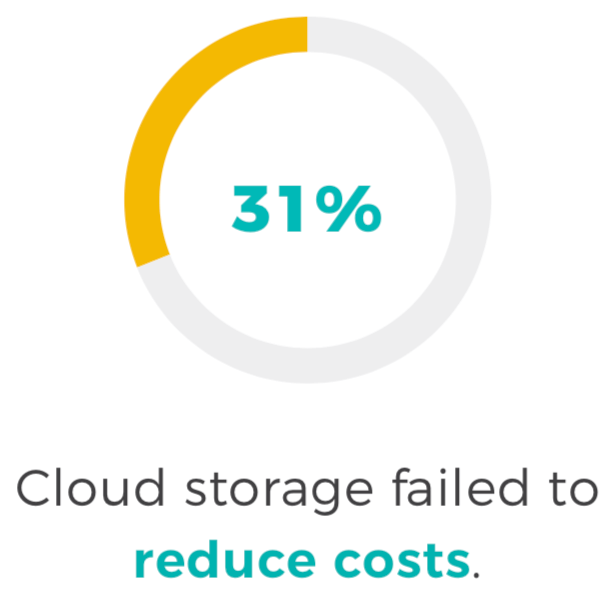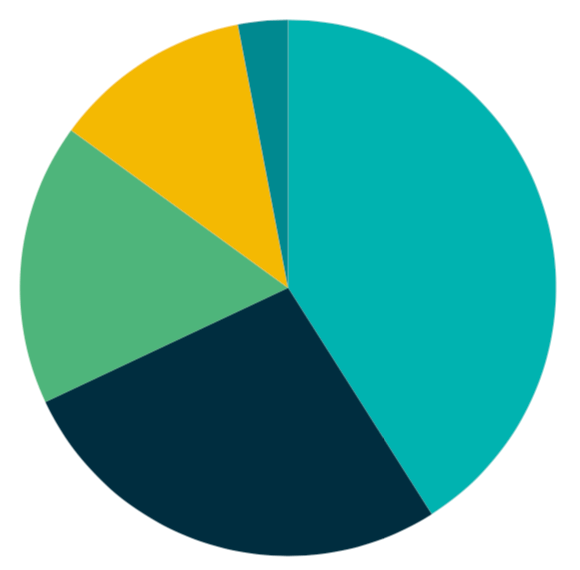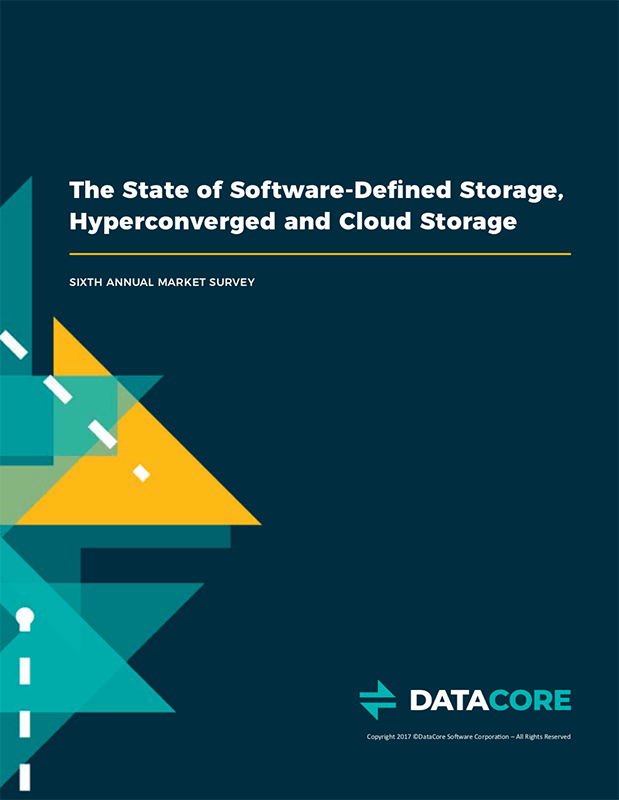Exploring Gartner’s Top 5 Use Cases for Software-Defined Storage
I&O leaders are looking for software-defined storage (SDS) products that offer the potential for better total cost of ownership (TCO), efficiency, and scalability to address exponential data growth needs and to benefit from innovations from hardware and software players independently.
Gartner Research
Top Five Use Cases and Benefits of Software-Defined Storage
In their report, Gartner predicts that by 2019, approximately 30% of the global storage array capacity installed in enterprise data centers will be deployed with software-defined storage or hyperconverged integrated system architectures based on x86 hardware systems, a significant increase from less than 5% today.
DataCore’s Sixth Annual Survey
We conducted a survey of over 426 IT professionals who are currently using or evaluating software-defined storage (SDS), cloud and hyperconverged storage to solve critical data storage challenges. The results yield surprising and unique insights from a cross-section of industries over a wide range of workloads.
Download our Report: The State of Software-Defined Storage, Hyperconverged and Cloud Storage
The survey respondents were asked: “What are the business drivers for implementing software-defined storage?” Their results showed:
- 55% want to simplify management of different storage platforms
- 53% are looking for a future-proof infrastructure
- 52% are looking to avoid hardware vendor lock-in
- 47% are looking to extend the life of existing storage solutions
In alignment with this study, Gartner also predicts that by 2019, approximately 30% of the global storage array capacity installed in enterprise data centers will be deployed with software-defined storage or hyperconverged integrated system architectures based on x86 commodity hardware systems, a significant increase from less than 5% today.
Research firm Neuralytix recommends that “All organizations need to include software-defined storage as part of their forward-looking IT planning.” Additionally, Neuralytix estimates that an SDS investment is likely to last for approximately 10 years.
Adoption of Software-Defined, Hyperconverged, and Cloud Storage Have Been Slow
Challenges and false starts with technologies have introduced reluctance in the industry to fully commit to a software-defined, hyperconverged, or hybrid data storage infrastructure. Until recently, the promise of cloud, ease of use, and faster application performance have fallen short of expectations.

In the 2017 DataCore SDS survey, 31% of respondents stated that the promise of reducing costs by moving to the cloud increased costs. This was largely due to management and resource management.
29% of respondents found management was more difficult, and 16% stated flash technology failed to accelerate application performance.
Predicted Adoption Rate of Hyperconverged Infrastructure
Along with SDS, a hyperconverged infrastructure (HCI) is another focal point in this year’s survey. With many different definitions from Gartner, Forrester, IDC, and other analysts, DataCore’s definition of hyperconvergence is validated by a majority of survey respondents:

41% Tightly integrated with hypervisor but hardware agnostic
27% Integrated appliance (hardware and software locked together)
17% Hardware and software that you put together and update independently
12% Hardware and software bundle that can be updated independently
By understanding how the responders view HCI, 34% are strongly considering deploying this type of solution. This is also validated by IDC, which states that hyperconverged sales grew 148.0% year-over-year during the first quarter of 2016, generating $371.88 million worth of sales. Gartner said the market for hyperconverged integrated systems (HCIS) is predicted to grow 79 percent to reach almost $2 billion, propelling it toward mainstream use in the next five years.
What are the compelling reasons? Simplify storage management, ease of use, and reduce hardware cost. Focused on the database (34%), data center consolidation (28%) and enterprise applications (28%).
Predicted Adoption Rate and Inhibitors of Hybrid Cloud
Hybrid cloud adoption is a key factor in in this year’s survey. However, several factors are creating hesitation. Over half of the respondents stated that security and sensitive data protection are the main reasons not to move to the cloud.
This year’s survey explored which types of applications users were willing move to a public cloud or hybrid cloud infrastructure. Again, the top answer was that for 47% of them, none of the applications are going to a public cloud or hybrid cloud, but 33% responded with select enterprise applications (such as Salesforce), followed by data analytics at 22%; databases at 21% and VDI at 16%. Many respondents pointed out that they are being very selective on which workloads they would run on public cloud infrastructures based on security, cost, and performance concerns.
DataCore’s State of Software-Defined Storage, Hyperconverged and Cloud Storage survey was designed to explore the impact of major software-driven enterprise storage deployments within organizations across the globe. The survey was conducted in late 2016 through April 2017 and distills the expectations and experiences of 426 IT professionals who are currently using or evaluating software-defined storage, hyperconverged, and cloud storage to solve critical data storage challenges.
Download the report to access the full results of the survey:
The State of Software-Defined Storage, Hyperconverged and Cloud Storage: Sixth Annual Market Survey

